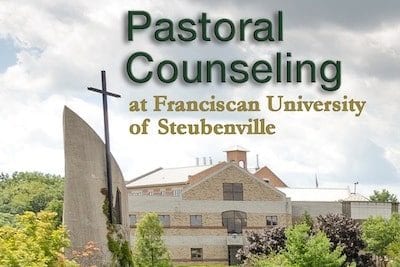Readings thus far have tried to address the question of “What is pastoral counseling?” As a discipline, pastoral counseling is, in some ways, still in search of an identity. Some writers suggest that all counseling is pastoral because it is aimed at healing; others suggest that pastoral counseling is counseling done by a pastor in a pastoral setting; still others suggest that pastoral counseling is unique in that it is aimed at furthering the kingdom of God, not only (merely) aimed at mental health betterment. Review and reflect on your readings thus far and construct a set of thoughts about what you believe pastoral counseling to be (this will be the main focus of Blog 1).
You might also consider addressing the following questions to help you lay out your ideas. How is pastoral counseling distinguished from other kinds (specialties) of counseling? In your opinion what would pastoral counseling from the perspective of your particular religious tradition look like? (Include church teachings/doctrines if you’d like).
I think that Benner was correct in defining Pastoral Counseling as Soul Care; which means healing, sustaining, reconciling, and guiding individuals psychologically and spiritually. What stood out to me the most throughout the readings we reviewed was the idea of Pastoral Counseling and soul care are modeled after the model of Jesus as the Good Shepherd. This idea was important to me because it emphasized the idea that Pastoral Counseling is more of a journey whereby the counselor acts as a shepherd to their clients. In this way the pastoral counseling process is more of a collaborative effort and a journey of two souls helping one another to grow closer to Christ. In the Strategic Pastoral Counseling text the goal of pastoral counseling that is included is, “to help individuals understand their problems and their lives in light of their relationship with God and live more fully in the light of this understanding” (pg. 36). I think that this is an accurate definition of what Pastoral Counseling aims to accomplish. I also think that it is important to remember that Pastoral Counselors are trained in both the Psychological and Theological disciplines and in this way they are bilingual. Pastoral Counseling differs from both Spiritual Direction and Clinical Mental Health Counseling. In fact I believe that Pastoral Counseling draws from both disciplines, and can be thought of as “in-between Secular Counseling and Spiritual Direction. Pastoral Counseling does not focus solely on spiritual issues or mental health issues; rather it encompasses both issues and how they intertwine in an individual’s life. In Benner’s text he included that “Jesus’ approach to soul care was based upon his conviction of the immense worth of persons.” I think this idea is central to the field of Pastoral Counseling. The scripture that was included in Benner’s book was the parable in Luke about the shepherd rejoicing over the finding of his one lost sheep. In spiritual direction the director is relying on the Holy Spirit to work through them and lead the session. In mental health counseling the counselor is expected to bring their professional knowledge into the counseling setting and the responsibility lies on the client to take responsibility for their own growth in the process of counseling. Pastoral Counseling is unique in that both the pastoral counselor and client are children of God, the counselor is the shepherd and the client is the one lost sheep out of the 99 that the shepherd deeply cares for and won’t cease looking for until they are found. The four attributes of soul care, are important to explain. Benner includes that healing is helping someone overcome problems and return to wholeness. Sustaining means helping a person who is hurting endure and understand their problems. Reconciling means to help someone repair broken relationships in their life. Finally guiding means to help someone grow in spiritual maturity. These aspects of soul care defined by Benner are important tenants of the complex field of Pastoral Counseling. In summary I believe that Pastoral Counseling is a bilingual discipline (psychological and theological) in where the counselor acts as a shepherd using Jesus’ example to address individual’s problems. According to Benner the pastoral counselor will want to “meet clients where they are at, use compassion, have a non-condemning moral foundation that they work out of, affirm their clients dignities and worth, and identify and discuss spiritual issues that might cause or be symptoms of a person’s pathology (pg. 28). I think that Pastoral Counseling is an incredible discipline that is a necessity in our society today.






